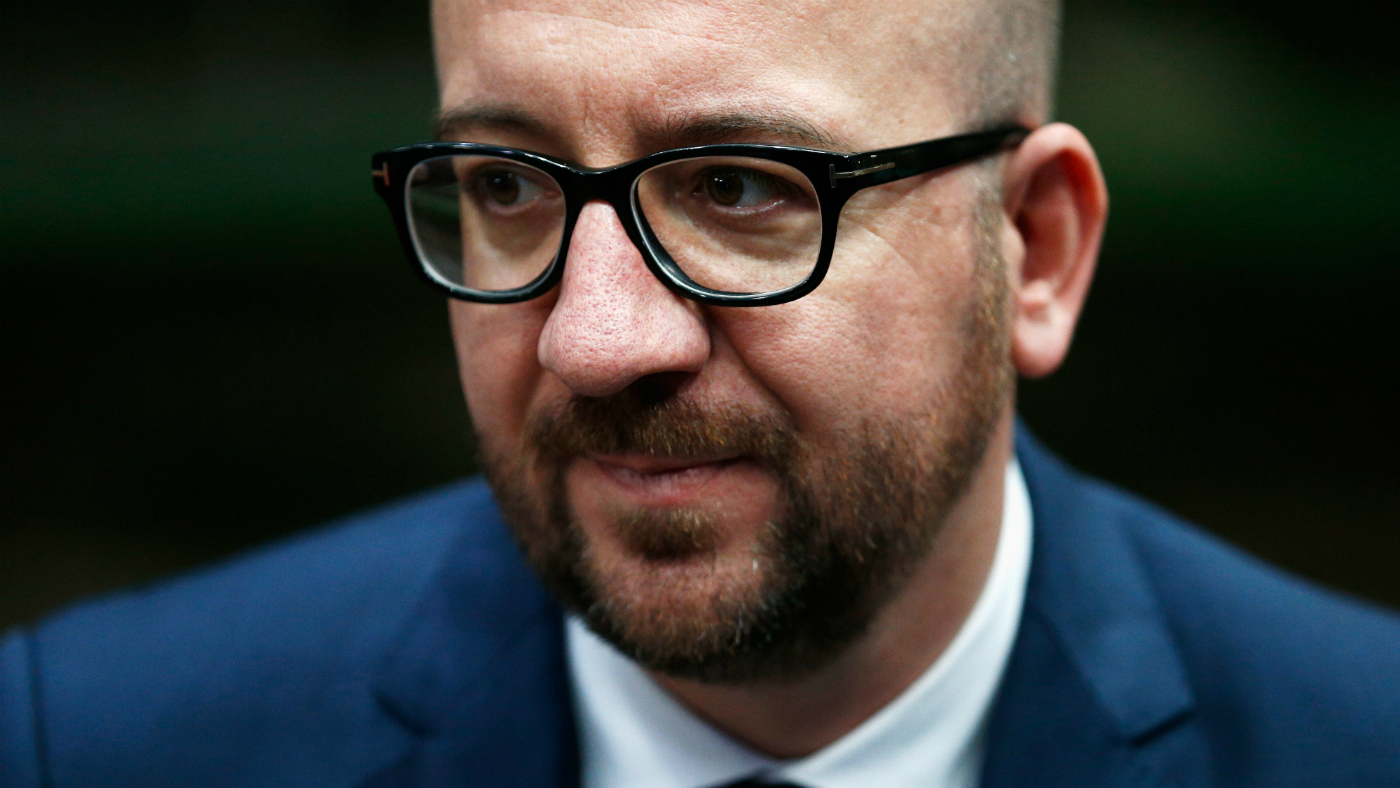Belgium’s PM resigns amid row over UN immigration pact
Charles Michel standing down following departure of far-right coalition partner

A free daily email with the biggest news stories of the day – and the best features from TheWeek.com
You are now subscribed
Your newsletter sign-up was successful
Belgian Prime Minister Charles Michel has handed in his resignation after the largest party in his coalition government quit over a UN migration agreement.
Michel said he had no choice but to step down after the opposition Socialist Party proposed a no-confidence vote against his administration, The Guardian reports.
The PM had asked opposition parties to call off the no-confidence bid and allow his government to keep working until legislative elections in May next year, in order to avoid what he called “stagnation for the whole of 2019”, reports The Daily Telegraph.
The Week
Escape your echo chamber. Get the facts behind the news, plus analysis from multiple perspectives.

Sign up for The Week's Free Newsletters
From our morning news briefing to a weekly Good News Newsletter, get the best of The Week delivered directly to your inbox.
From our morning news briefing to a weekly Good News Newsletter, get the best of The Week delivered directly to your inbox.
But Michel said that the opposition’s decision to proceed meant he had to quit - potentially leaving Belgium facing a snap election as early as next month. “My call did not convince. It was not heard,” he said. “I have decided to resign and go to the king immediately.”
Under Belgian law, the ruling monarch has the power to reject a PM’s resignation, and it is not clear whether the country’s King Philippe will accept Michel’s departure. In a post on Twitter, the Royal Palace said the king had received him and was “withholding his decision” about what steps to take next.
Michel has led a four-party coalition government in Belgium since 2014. However, on 9 December he was left at the helm of a minority government after the nationalist New Flemish Alliance (N-VA) party quit the coalition over Michel’s decision to support a controversial UN accord on migration.
The deal, known as the Global Compact for Migration (GCM), aims to better manage migration at local, national, regional and global levels, reducing the risks that migrants or refugees face during their journeys.
A free daily email with the biggest news stories of the day – and the best features from TheWeek.com
The plan has been praised by world leaders including German Chancellor Angela Merkel, who said it would help facilitate the “natural phenomenon” of migration.
But the BBC notes that critics “believe it will lead to increased immigration to the Continent”. Austrian Chancellor Sebastian Kurz claimed in October that the pact would “blur of the lines between legal and illegal migration”.
In Belgium, the N-VA also opposed the GCM in a “widely criticised social media campaign” launched earlier this year that featured “pictures of Muslim women with their faces covered”, and that claimed the accord was focused on “allowing migrants to retain the cultural practices of their homelands”, Al Jazeera reports.
Although 164 countries have backed the deal, nations including the US, Australia, Hungary, Poland, Switzerland and Austria are among those who have refused.
The pact was signed in conjunction with a Global Compact on Refugees (GCR) that aims to provide similar improvements to the processing of refugees. The US and Hungary were the only two nations that voted against the GCR.
-
 ‘The West needs people’
‘The West needs people’Instant Opinion Opinion, comment and editorials of the day
-
 Filing statuses: What they are and how to choose one for your taxes
Filing statuses: What they are and how to choose one for your taxesThe Explainer Your status will determine how much you pay, plus the tax credits and deductions you can claim
-
 Nan Goldin: The Ballad of Sexual Dependency – an ‘engrossing’ exhibition
Nan Goldin: The Ballad of Sexual Dependency – an ‘engrossing’ exhibitionThe Week Recommends All 126 images from the American photographer’s ‘influential’ photobook have come to the UK for the first time
-
 Epstein files topple law CEO, roil UK government
Epstein files topple law CEO, roil UK governmentSpeed Read Peter Mandelson, Britain’s former ambassador to the US, is caught up in the scandal
-
 Iran and US prepare to meet after skirmishes
Iran and US prepare to meet after skirmishesSpeed Read The incident comes amid heightened tensions in the Middle East
-
 Israel retrieves final hostage’s body from Gaza
Israel retrieves final hostage’s body from GazaSpeed Read The 24-year-old police officer was killed during the initial Hamas attack
-
 China’s Xi targets top general in growing purge
China’s Xi targets top general in growing purgeSpeed Read Zhang Youxia is being investigated over ‘grave violations’ of the law
-
 Panama and Canada are negotiating over a crucial copper mine
Panama and Canada are negotiating over a crucial copper mineIn the Spotlight Panama is set to make a final decision on the mine this summer
-
 Why Greenland’s natural resources are nearly impossible to mine
Why Greenland’s natural resources are nearly impossible to mineThe Explainer The country’s natural landscape makes the task extremely difficult
-
 Iran cuts internet as protests escalate
Iran cuts internet as protests escalateSpeed Reada Government buildings across the country have been set on fire
-
 US nabs ‘shadow’ tanker claimed by Russia
US nabs ‘shadow’ tanker claimed by RussiaSpeed Read The ship was one of two vessels seized by the US military